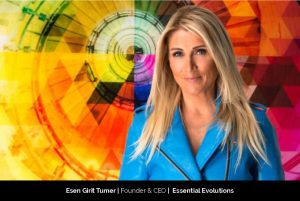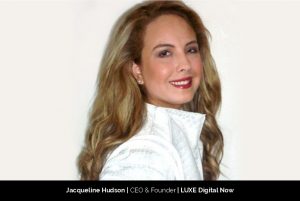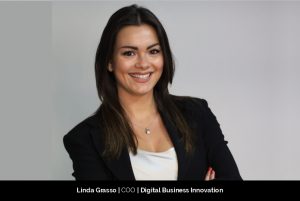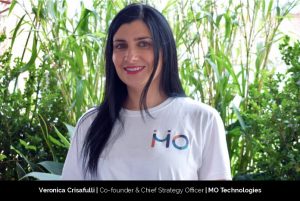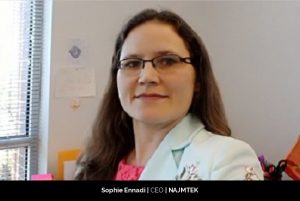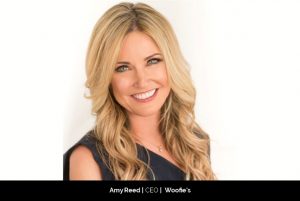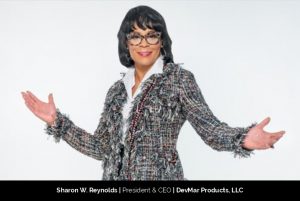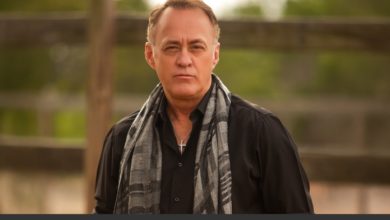Q & A With Constangy Partner Kimberly Talley
On How She Found Optimal Success and Career Satisfaction in BigLaw
On How She Found Optimal Success and Career Satisfaction in BigLaw
The Most Influential Women Making a Difference in 2021
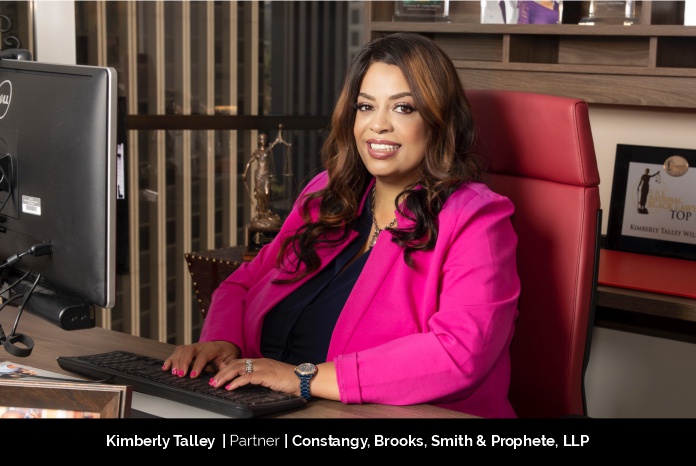
Kimberly
Talley is a partner in the Los Angeles office of Constangy, Brooks, Smith
& Prophete, LLP, a prominent national labor and employment firm based
in Atlanta. In her practice, she
represents national employers in “bet-the-company” and other high stakes
employment litigation matters, with potential exposures in the eight and nine
figures. She believes that Constangy has
given her the opportunity to be the most successful she has ever been in her 30-year
career practicing law because of its unique culture and leadership’s commitment
to diversity, equity, and inclusion. As a leader herself within the firm,
she is committed to making the practice of law a positive experience for all
attorneys, especially women and attorneys of color, who for many years have
left the practice of law because of the challenges they experienced in large
national law firms (BigLaw).
In a recent Q & A interview with
Kimberly, she shares with Beyond Exclamation! Magazine her
story, including her vision for Constangy and advice to aspiring young
attorneys.
Tell
us about Constangy and why you believe it is a special place to practice law.
Constangy is a national, highly ranked, and
highly regarded law firm with 29 offices throughout the country focusing on management-side
labor and employment defense. We handle
almost anything related to the workplace, from daily advice to large and small
clients, to exceptionally large complex litigation. I think what distinguishes Constangy
from other firms is not as much what we do, but how we do it. Our clients tell us there is a “soul to
Constangy” which is evidenced by the camaraderie that exist among the
partners. There is a mutual feeling of
trust and respect which flows over into our legal practice.
As a woman of color, I wanted to join a law
firm that would stand for the values and beliefs which are important to
me. I also wanted this career move to be
my last. Constangy had just opened its Los
Angeles office in February 2016 when I interviewed. After meeting with a number of partners
across the firm, I joined the firm as its eighth attorney to help expand the
firm’s presence in California. In
addition to the incredibly talented colleagues that I would be working with on
my cases, the primary reason that I joined Constangy was because of the firm’s
deep commitment to diversity, equity, and inclusion (“DEI”) issues. I know a lot of firms talk about the
importance of DEI issues, but as they say, “the proof is in the pudding.” Constangy
does more than talk, it walks the walk. Don
Prophete is one of the first and only African American partners whose name is
on the door at a BigLaw firm. When I
joined the firm, it was incredible to see so many attorneys-of-color flourishing
in their practice. They were the firm’s
top rainmakers; they were serving as office heads, on the Executive Committee,
and thriving in their practice. After my
first year at Constangy, my practice grew significantly; before the end of my
second year, I was promoted from partner to equity partner; and by my third year,
I was serving a two-year term on the Executive Committee (firm management) and
serving in other leadership positions. This
has also been the trajectory of the attorneys-of-color who I have recruited to
the firm and who have joined after me both in Los Angeles and across the
country. The unique firm culture and unwavering
support from firm leadership simply maximizes every attorney’s opportunity to
have a successful legal practice.
In addition to the firm’s commitment to
DEI, it is just an overall great place to work.
For several consecutive years, the Los Angeles office has been named one
of the best places to work in Los Angeles for all companies our size, not just
law firms, by the Best Companies Group. Since
graduating from Harvard Law School, joining Constangy has been the best
decision in my entire career.
What
led you into the field of law?
I became a lawyer because I wanted to help
people achieve justice. Part of my natural skills and talents are helping
people. The way the world works is not perfect. I recognize there are problems
and injustices in the world. I also recognize I have excellent ideas and that I
am good at advocating for other people and helping them find solutions to their
problems. I realized early on in life that the various systems that we work
inherently have problems and I can try to do what I can to make things as right
as they can be – and for me I wanted to be a lawyer working in the judicial
system because that is where I thought I could have the most impact.
Every
leader has a unique definition of success.
What is your definition and what do you think it takes to help someone
succeed?
While success is sometimes measured by
financial prosperity and professional recognition and achievement, there are
also intangible measures such as career and personal satisfaction, freedom and
flexibility, and seeing others around you succeed, including those you have
mentored and had some influence over their life. My definition of success lies
at the intersection of doing something that I love and feel is within my
purpose or calling – like being an attorney, an advocate for my clients – while
simultaneously doing something that I can earn a living and sustain me in a
real world way.
Mentorship and success go hand and hand.
There is so much statistical data that backs that up. In my opinion, it is hard
to be successful without mentorship, especially when you have intersectional
identity like being a minority and a woman. Having a mentor helps you make
fewer bad decisions. It saves you years and years of figuring it out yourself,
especially if you have a person who can say “it took me 10 years to figure this
out, but I am going to teach you this in an hour.” That is what is most important about
mentorship — the wisdom that is passed along. It is not just about the people
who can introduce you to someone or write you a letter of recommendation, it is
really the wisdom that the person can pass down to you – having access to their
thinking and experience; that is where a lot of the gold in mentorship really
is – and sometimes we can miss that.
When it comes to my personal story,
mentorship was extremely important for my success. I had several mentors
including those who mentored me informally. I spent 14 years of my career
working with my mentor, Naomi Young, first at Gartner & Young and then at
Baker & Hostetler. In addition to training me to become a good lawyer and
being a role model for me as a highly successful African American woman, she
provided me with wisdom and advice on how to navigate a career in BigLaw. She
also taught me about business development since she was a leading rainmaker in
the firm. One of the firm’s clients, T. Warren Jackson, also became an informal
mentor while I was an associate and he continued in that role when I became a
partner. He helped me refine my litigation skills as a young attorney; he
helped me with client development and he also provided me with sound advice on
career moves. He also mentored me when I expanded my practice from
single-plaintiff work to class action wage and hour matters.
Even today as an equity partner and mentor
to others, I still have mentors. Over 25 years later, I still have active
relationships with both of my mentors Naomi and Warren and continue to seek
them out for wisdom and advice. Don Prophete, whose name is on the firm
masthead, provides mentorship to me and many others in helping us grow as
leaders and with client development.
How
would you describe your leadership style and what attributes do you think are
important for an effective leader?
I would say that in all I do, both in my
personal and work life, I try to be kind to others. It’s a tenant of my
Christian faith: “be kind to one another.” This simple principle by which I live my life
has spilled over to how I practice law and my leadership style. By leading with kindness, I do not mean just being
friendly towards others. Rather, I mean
demonstrating genuine concern for the well-being of others; showing them
respect and compassion and simply being considerate of others. These may not sound like the customary
attributes that lead to success for an attorney practicing in BigLaw, but they
have helped me tremendously in my career both in my practice of law and in my
role as a leader. Kindness does not mean
weakness, nor does it diminish others’ respect for you. Rather, I have found that when you are
authentically kind to others and you are approachable, this produces mutual
trust, loyalty, dependability, and motivates everyone to want to do their best for
you and the organization.
I think honesty (trustworthiness) and
loyalty are the most important attributes of a highly effective leader. I have seen these two attributes in all of
the great leaders that I have come across in my career, including within
Constangy.
A highly effective leader is also patient
and will invest in his or her team/employees.
This includes investing time and resources in underperforming but loyal
and dedicated employees through both training, coaching, and mentorship as well
as motivation and inspiration. It is
easy to want to focus one’s resources on a top performing employee who will
make his or her way through the ranks and receive promotion; however, it takes
a truly great leader to take an underperforming or mediocre employee and turn his
or her performance around so that the person becomes a top performing employee
and has a long-lasting career with the company.
That is true leadership.
Challenges
make you stronger. What is your take on this? What were the roadblocks that
taught you valuable lessons in your professional journey?
In many respects, the challenges that I
have faced as an attorney are similar to those faced by my colleagues. As an
African American woman, however, there were additional obstacles that I have had
to face. One of the biggest challenges I have had to deal with is finding my
voice in the workplace. On the one hand, it is and has always been very
important for me to speak up when I have a strong opinion about an issue. I
place a high value on being able to have open and frank discussions with my
colleagues and partners. On the other hand, during the course of my career, I
have noticed that there can be a double standard for women of color who speak
up in the workplace and are assertive. We are sometimes perceived as combative
or “too aggressive,” especially if we disagree with or want to change the
status quo. The challenge for me was whether to allow myself to succumb to the
negative stereotypes and be quieter when the work environment was such that it
was risky for me speak up.
I am thankful for my mentors, two highly
successful African American attorneys, who modeled for me the best way to deal
with this challenge. They instilled in me the importance of allowing my voice
to be heard no matter the consequences. In my journey, I am thankful for my
mentors and for having found a firm like Constangy, where I can have an opinion
that is not only valued, but I express myself authentically without the fear of
being perceived in a negative manner.
In terms of professional challenges in
general, my belief is that “pressure creates diamonds.” I can look back on every challenge that I
have faced in my career, and I know that I have become a better and stronger
person after these experiences. These trials and tribulations made me stronger
and more resilient. They taught me to believe in myself and to know that I will
get through whatever adversity I face. Challenges can teach you so much
depending on your perspective. Some people go through hardships and let
themselves become victims or they are only able to focus on the hurt. It is
true that challenges may hurt you, but I think it is important to do everything
you can as an individual to turn every hardship you face into lessons; that is
the only way they can turn into blessings. I think that challenges build a
person’s character and make one stronger, but you must be open to navigating
the hurt or the frustration and recognize what you can learn from the
situation.
How
do you ensure a culture of integrity at a company such as Constangy?
I would say that you ensure a culture of
integrity first by modeling it yourself and within senior leadership before you
ask it of others. You cannot expect anyone else to do something you do not do,
especially if you help form the culture. If you have that power and you are not
modeling it yourself, it is unreasonable to expect it from other people,
especially folks with less power than you.
In addition to having senior management model
it from a personal standpoint, it is important for organizations to offer
incentives to encourage these important values. Just like businesses offer
incentives for certain things– in the legal field, bringing in clients is
rewarded, hard work is rewarded – organizations have to offer incentives for
things like creating a culture of integrity or otherwise reinforcing company
values. Sometimes an organization will value money over integrity, and you can
see that reflected in promotions and compensation. If you look at what
incentives an organization is offering to its people, that shows where the
organization’s values are.
What
is the significance of innovative ideas in the company and how do you stay
abreast with the growing competition in the industry?
I know that the concept of “innovative
ideas” has become such a buzz phrase these days. Based upon everything that I
have read, innovation is the implementation of new, unique, or creative ideas that
add value to a company and its clients. In the legal field, it is important for
a law firm to be on the cutting edge of our profession. This may include coming
up with legal strategies on how to defend our cases, finding unique ways to
generate more business, finding ways to attract and retain the best talent, finding
the best ways to reduce legal spend for our clients, or dealing with solutions
for whatever challenges come the firm’s way. In order to stay ahead of the
competition, any business must be open to new and fresh ideas. What may have
allowed a law firm to be successful in the past may not work in today’s
environment. Senior leadership must ensure that there is a constant flow of
innovative ideas.
I think what can create a culture of innovation
is creating an environment where everyone in the firm feels like they can
suggest ideas. I also think it is important to have an environment where it is
not just senior leadership offering solutions. In other words, the best way to
get innovation is to allow everyone in the room (people who have all different
backgrounds and experiences, who are all looking at the same situation from
different perspectives and paradigms), have a voice. Shared opportunities to
offer ideas (and I do not necessarily mean shared decision-making power) allows
for ideas that are new, fresh, different, and functional. Companies who harness
this are innovating in our world simply based on the way that they structure
their organizations. When you can nail innovation and innovative thinking and
democratize it, you will not have to worry about competition because (a) you
will be doing things so specific to your organization folks will only be able
to steal your ideas; and (b) when you are really pinpointing innovation, you
naturally are a leader in the field. Bottom line, when you have diversity in
who you allow brainstorming –from interns to senior leadership or in the legal
field, from associates to partners, you do not have to worry about the
competition because the company itself is in the forefront spearheading
innovation in their fields.
What
is your message to aspiring young attorneys?
Having worked at several great law firms
over my 30-year career, I would have two general types of advice for young
attorneys, one relating on how to be successful in a law firm setting and one
about how to choose a law firm. Because my career has been solely in the law
firm setting, I will focus on advice to young attorneys who want to be
successful at a law firm.
First, I would tell them that it takes a
lot of hard work, time, and dedication to be successful at a law firm. This
will require a lot of personal sacrifice. They must be both patient and
productive so that when their time comes, they are ready to receive the
promotion or partnership.
I would also start teaching young
associates about the business side of the profession early in their career. It
is a given that an associate’s work-product must be stellar, but excellent work
alone may not always be enough to make an associate successful at a firm. It is
a given that they must be knowledgeable about the case, understand the legal
theories, and always be prepared, but they also must ensure all their time is
billed correctly and they are meeting their billable hour goals because that is
what management is reviewing at the end of the day. In other words, I would
tell them that in order to be successful in a law setting firm, they must bring
value to a firm and be profitable. For example, as a labor and employment
attorney, I tell young associates to make sure they get an opportunity to work on
class action cases even if they prefer single plaintiff work or advice and
counsel work because the class action work is more profitable to the firm. As
they go through the ranks and start to be evaluated for partnership, an
associate’s productivity is a key factor in determining whether he or she is
promoted. I also would tell them to think about business generation early in
their career and start forming relationships with individuals who may be a
resource for business in the future.
The second piece of advice to young
attorneys is for them to search for a law firm that shares their core values
and will provide them an environment to maximize their potential for success. Instead
of focusing on firms that simply provide prestige and high salaries, they want
to find a firm that provides the right “fit.”
Having found a firm like Constangy later in
my career, my only wish is that I could have joined them sooner (although we
did not have a Los Angeles office until the year I joined). I am the happiest
and most successful I have ever been in my career and that is directly
attributable to the fact that Constangy’s work culture and core values are
directly aligned with my core values. I
have amazing peers who are super talented and help each other succeed. Our leaders
lead by example. Constangy is committed to diversity, equity, and inclusion. Finally,
the firm empowers a culture of trust, loyalty, positivity, respect,
transparency, and open communication. In this environment, an attorney can only
thrive and has the best opportunity for success.
Finding the right “fit” is critical. It is
almost like being in a relationship. There are certain deal-breakers. If
something is important to you but not important to the firm, then maybe you and
the firm are not compatible. I would also tell young attorneys to make sure
they are working at a firm with a healthy environment and where people enjoy
coming to work. Every job has its ups and downs, and no work environment is
perfect, but they should work in an environment where they are being treated
with respect, their contributions are valued, and where they are progressing in
their career development.
There are many great places to work such as
Constangy and younger lawyers simply must keep searching until they find the
right fit. I would say do not settle or they will regret it.
Tell
us what is your vision for Constangy and how do you wish to influence change?
My vision for Constangy is that the firm continues
to provide impeccable legal service to our clients and maintain its reputation
as a go-to national labor and employment boutique firm, not only in Los Angeles
and California but around the country as we continue to expand in other legal markets.
One of the many reasons that I was
attracted to Constangy is that the firm’s leadership is committed to diversity,
equity, and inclusion issues. I am now a member of the firm’s DEI Steering
Committee and involved in other DEI firm initiatives. As part of the
leadership’s vision, Constangy rolled out a number of new DEI initiatives last
year. One of my favorite DEI groups is
the Inward Facing Forum Group where Constangy attorneys across the United
States meet and have bi-monthly discussions on various topics relating to
racial equity and justice. We have frank
and open discussions with one another and also work to come up with solutions
on how we can improve our firm and the communities where we live.
Constangy is also committed to the hiring
and retention of attorneys of color. Since I have been at the firm, we have
been able to attract talented diverse attorneys and cultivate their skills,
talents, and interest and they have been incredibly successful at Constangy. My vision for Constangy is that it will be
seen as a place for any attorney, especially attorneys of color, to know that
they can come and succeed in the practice of labor and employment law at the
national level.
I wish to influence change so that everyone
at the firm shares these core values on the importance of DEI issues not only
with respect to the firm, but with respect to making a change in the world in
general.
How
do you keep the attorneys on your team and yourself motivated?
The way I keep myself motivated is by continuously
pushing myself to become a better person, partner, and leader. The attorneys
who help me on my legal matters become motivated when they see me pushing
myself to be better. I provide praise on a daily basis for a job well-done,
including for big and small accomplishments. I give everyone credit for my
success as a partner since we all work as a team.
How do you maintain a balance in your personal and professional life?
This is admittedly something that is hard
to do, and I continue to work on perfecting this. I mainly just focus on trying
to be a balanced person overall. I am spiritual and my spiritual practice is
something that grounds and balances me. When I feel balanced, this seeps into
my personal and professional life.
Tell
us about some of the recognitions that you have received as a leader and
attorney?
In 2019, I was selected by Savoy Magazine
as one of the most influential women in corporate America. According to the magazine, we were selected
“based upon [our] exemplary record of accomplishments and influence while
working to better [our] community and inspire others.” This recognition meant a lot to me because it
looked at my overall achievements. I am also
a Fellow of the American Bar Foundation, an honorary society limited to the top
one percent of all attorneys in the United States. I was also honored to become
a Fellow of the Litigation Counsel of American-an invitation only trial lawyer
honor society consisting of the top one percent of attorneys in the United
States. Fellows are invited into the
Fellowship after being evaluated for effectiveness in litigation and trial
work, along with ethical reputation.
For the last seventeen consecutive years, I
have been named a Southern California Super Lawyer in the field of Labor &
Employment law, an honor based upon peer recognition limited to the top 5% of attorneys
in the state. Since 2009, I have been named one of the Top 50 Women Attorneys
in Southern California by the same publication on six occasions. In recent years, I have been named to the
National Black Lawyers Top 100 Attorney list.
***
In her personal life, Kimberly enjoys spending time with her husband Mark Wilson and two Chow Chows, Ari and Chloe. She also serves on the board of Center of Hope located in Inglewood, California. Kimberly considers herself an amateur photographer and several of her photos taken of President Barack Obama and First Lady Michelle Obama between 1986 and 1989 while attending Harvard Law School have been featured in an MSNBC documentary and a book about Michelle Obama. She was also a featured author in the American Bar Association’s Book, “The Woman Advocate” writing chapter six “Succeeding as a Woman of Color.”





